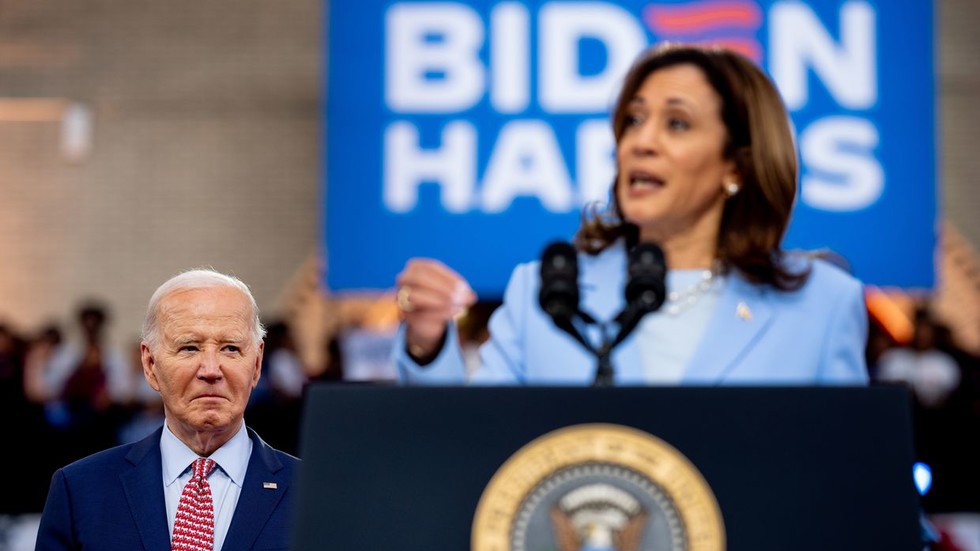In the latest political developments leading up to the November elections, the campaign team of US Vice President Kamala Harris appears to be distancing itself from President Joe Biden’s efforts to support her. Reports from Axios indicate that despite Biden’s intention to dedicate days to campaign alongside Harris, her team has not scheduled any joint events. This situation allegedly stems from Harris’ concerns over Biden being perceived as a “political liability” at this critical juncture. While there seems to be a hesitation in explicitly rejecting Biden’s support, her team has communicated a dismissive vibe characterized by ambiguous responses to the president’s offers.
The complex dynamics between Harris and Biden have led some insiders to liken their relationship to a “slow-moving break-up.” Harris’ inner circle reportedly appreciates Biden’s long-standing contributions to the Democratic Party, yet they are cautious about closely aligning her campaign with a president whose popularity is dwindling. Given that Biden’s approval rating has plunged to 39%, as per a Gallup poll released in early October, Harris’ allies seek to forge a clearer identity separate from Biden. They view the current political landscape as requiring a fresh direction, distancing from Biden’s administration, which they feel could remind voters of the last four years rather than presenting a new vision for the future.
Compounding these issues are Biden’s controversial remarks that recently triggered backlash from the Republican party, specifically the Trump campaign. His off-the-cuff comment during a campaign event, suggesting that Trump ought to be “locked up,” drew immediate rebuke and accusations of weaponization of the judicial system against political adversaries. Although Biden clarified that he meant “politically lock up” Trump, his original statement ignited a firestorm of criticism, raising questions about his strategic positioning as a campaign figure for Democratic candidates like Harris.
Despite the discord and challenges, many on Biden’s team retain faith in the president’s potential influence on the campaign. They argue that Biden’s connection to certain voter demographics could still play a critical role in swaying undecided voters in favor of Democrats, including Harris. This viewpoint contrasts with the apprehensions expressed by Harris’ campaign, illustrating a divide within the Democratic Party regarding the effectiveness of a Biden-Harris alliance in the current electoral climate.
The situation is rife with complications as Harris prepares for the election amidst these tensions. Potential negative association with Biden’s declining approval ratings poses a concern for her campaign strategy. Nevertheless, Biden’s campaign team seems committed to finding a way to leverage his political experience and remaining support among some voter segments while addressing the unease from Harris’ team about being tethered too closely to an unpopular administration.
Ultimately, the rift between Harris’ campaign and Biden suggests a looming challenge that could impact the overall strategy for the Democratic Party ahead of the electoral race. As the November election approaches, the necessity of a cohesive and compelling campaign that resonates with voters remains paramount. For Harris to succeed, she must balance the legacy of Biden’s presidency while crafting her own narrative—one that envisions a forward-looking agenda aiming to galvanize support and reinvigorate the Democratic base. As both teams navigate this complex terrain, the effectiveness of their collaboration remains uncertain and continues to be a topic of interest for political analysts and voters alike.

